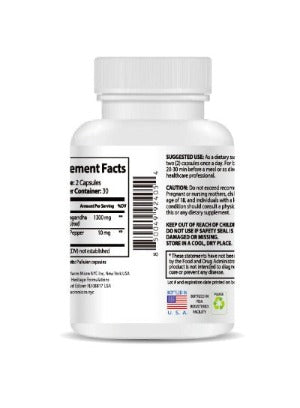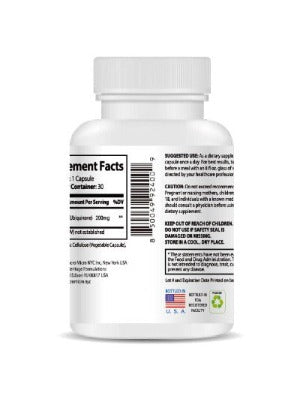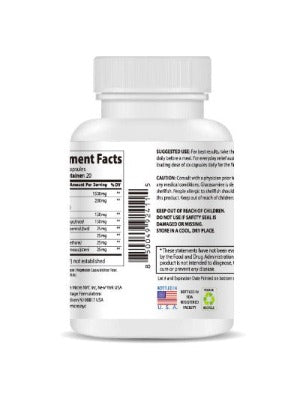Top 10 Ways to Prevent Allergic Conjunctivitis During Allergy Season
Allergic conjunctivitis, often called hay fever of the eyes, is a prevalent and bothersome condition that peaks during allergy season. Characterized by itchy, watery, and red eyes, it significantly impacts daily life, making even simple tasks uncomfortable. This comprehensive article delves into ten effective strategies to help prevent or minimize allergic conjunctivitis symptoms, enhancing your comfort and well-being during allergy season and beyond. We'll explore practical steps you can take to protect your eyes from the onslaught of airborne allergens.
Understanding Allergic Conjunctivitis: A Deeper Dive
Before we explore preventative measures, let's gain a clearer understanding of the underlying mechanisms of allergic conjunctivitis. This condition occurs when your eyes come into contact with allergens, triggering a cascade of immune responses. These allergens, which vary from person to person, are often airborne particles. Common culprits include pollen (from trees, grasses, and weeds), pet dander (proteins shed from animals' skin), dust mites (microscopic creatures thriving in bedding and carpets), and mold spores (fungal reproductive units). When these allergens reach your eyes, they trigger the release of histamine and other inflammatory chemicals, initiating the characteristic allergic reaction. This inflammatory response leads to the symptoms you experience, including itching, redness, swelling, and excessive tearing.
The severity of allergic conjunctivitis can vary widely, ranging from mild discomfort to significant impairment of vision. While many individuals experience mild symptoms, others may find their daily routines significantly disrupted. Understanding the intricate interplay between allergens and your immune system is the first step towards effective prevention.
Top 10 Preventative Strategies: A Holistic Approach
Implementing these preventative strategies can significantly reduce your risk of developing allergic conjunctivitis or lessen the severity of symptoms, allowing you to enjoy the outdoors and daily life without the constant irritation of itchy, watery eyes.
- Precise Allergen Identification and Avoidance: The Cornerstone of Prevention The most effective way to prevent allergic conjunctivitis is to identify and avoid your specific allergy triggers. This often involves allergy testing conducted by an allergist or doctor. Allergy testing, usually a skin prick test or blood test, can pinpoint the specific allergens causing your reaction. Once you know your triggers, you can take proactive steps to avoid them. This might involve staying indoors on high-pollen days, especially during peak pollen hours (typically morning and early afternoon). If you have pet allergies, minimizing contact with pets, regularly cleaning areas where pets spend time, and perhaps even considering hypoallergenic pets are crucial. If dust mites are a trigger, diligently cleaning your home, using allergen-impermeable covers on mattresses and pillows, and regularly washing bedding in hot water becomes vital.
- Strategic Use of Sunglasses: Creating a Physical Barrier Sunglasses act as a physical barrier, preventing airborne allergens from directly contacting your eyes. Opt for wraparound styles that offer comprehensive protection, significantly reducing the number of pollen particles or other allergens that reach your eyes. Look for sunglasses that are labeled as providing UV protection, offering additional benefits beyond allergy prevention.
- Meticulous Hand Hygiene: Preventing Allergen Transfer Frequent and thorough handwashing is essential in preventing the spread of allergens. Allergens can easily transfer from your hands to your eyes, exacerbating symptoms. Always wash your hands thoroughly with soap and water after being outdoors, before touching your face, and after handling pets or any potential sources of allergens.
- Refrain from Eye Rubbing: Avoiding Further Irritation The urge to rub itchy eyes is strong, but resisting this urge is crucial. Rubbing irritates the eyes further, intensifying inflammation and potentially prolonging the duration of symptoms. Instead of rubbing, try cold compresses or artificial tears for temporary relief.
- Artificial Tears for Relief: Flushing Away Irritants Artificial tears can provide quick relief by flushing away irritants and alleviating dryness, providing immediate comfort. Choose preservative-free options to minimize any potential side effects or further irritation to your already sensitive eyes. These lubricating eye drops help to maintain the eyes' moisture balance, reducing discomfort.
- Consider Antihistamine Eye Drops: Targeted Relief Over-the-counter antihistamine eye drops can offer targeted relief from itching and inflammation. These drops work by blocking the action of histamine, a key chemical involved in the allergic response. Consult a pharmacist or doctor to determine the best option for your needs, ensuring it doesn't interact with other medications you might be taking.
- Soothing Cold Compresses: Reducing Swelling and Inflammation Applying a cool compress to your eyes can effectively reduce swelling and soothe irritated tissue. A simple, clean cloth soaked in cold water works well, providing immediate relief from itching and burning. The coolness constricts blood vessels, lessening inflammation and soothing irritated eyes.
- Enhance Indoor Air Quality: Minimizing Allergens at Home Investing in an air purifier equipped with a HEPA (High-Efficiency Particulate Air) filter is a significant step in reducing indoor allergens. HEPA filters effectively trap even the smallest particles, including pollen, dust mites, and mold spores. Regular cleaning and dusting are also crucial in minimizing allergen accumulation. Pay close attention to frequently touched surfaces and bedding.
- Pre-Sleep Cleansing: Removing Allergens Before Bed Showering or washing your face before bed helps remove any residual allergens that might have accumulated on your skin or hair during the day. This prevents allergens from transferring to your pillowcase and eyes during sleep. Freshly washed bedding also minimizes allergen exposure throughout the night.
-
Soothing and Relief with Wise Quest Soothing Eye Patches - 3-Month Wellness Pack: For soothing relief from eye discomfort associated with allergic conjunctivitis, consider incorporating the Wise Quest Soothing Eye Patches - 3-Month Wellness Pack. These patches, harnessing the power of traditional Chinese herbal medicine, fundamentally relieve eye fatigue, eye dryness, eye astringency, eye redness, and swelling caused by long hours in front of screens or allergens. They promote healthy blood circulation, helping to relieve most eye discomfort and disease. These patches provide a gentle, natural approach to soothing irritated eyes, complementing other preventative measures.

By diligently implementing these preventative strategies, you can significantly reduce your susceptibility to allergic conjunctivitis and enhance your overall eye health and comfort during allergy season and throughout the year. Remember that consistency is key. While some strategies provide immediate relief, others require ongoing commitment for long-term protection. If symptoms persist or worsen despite these preventative measures, consult your doctor or ophthalmologist for personalized advice and treatment. They can help determine the underlying cause and recommend appropriate medical interventions if necessary.









